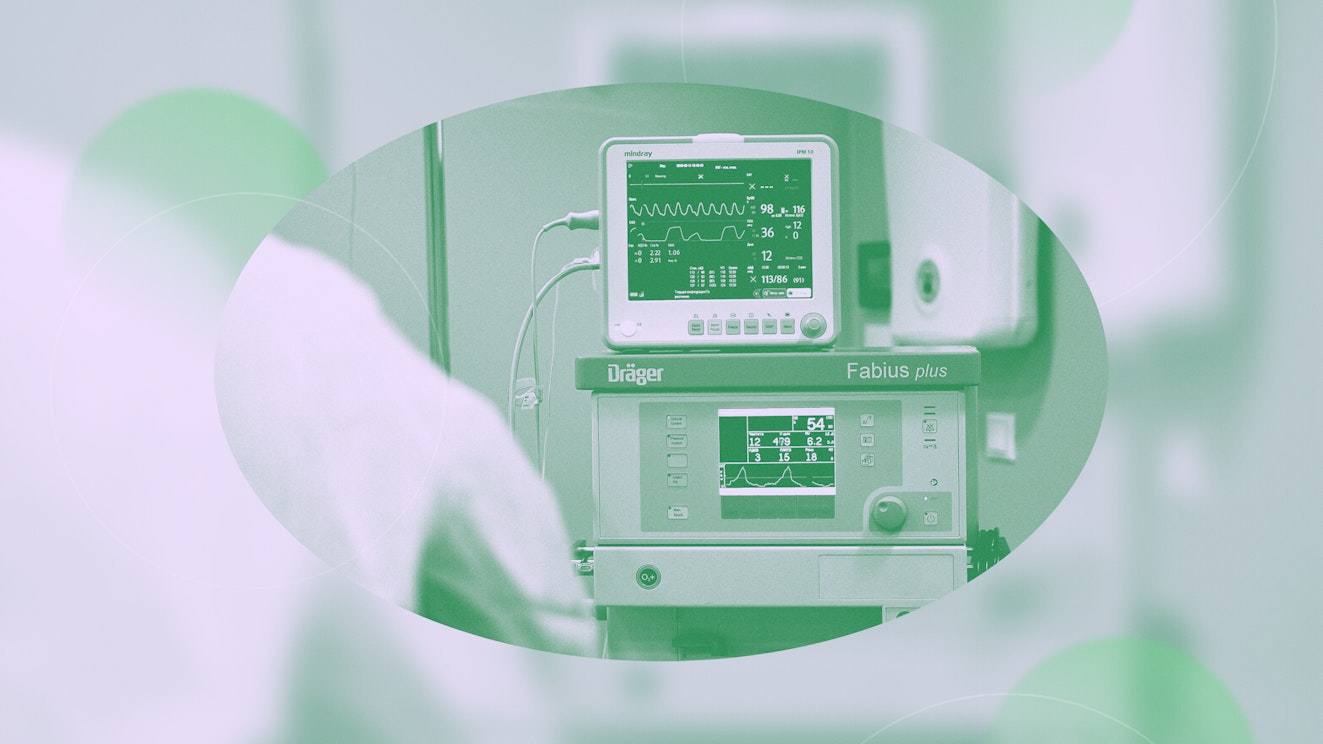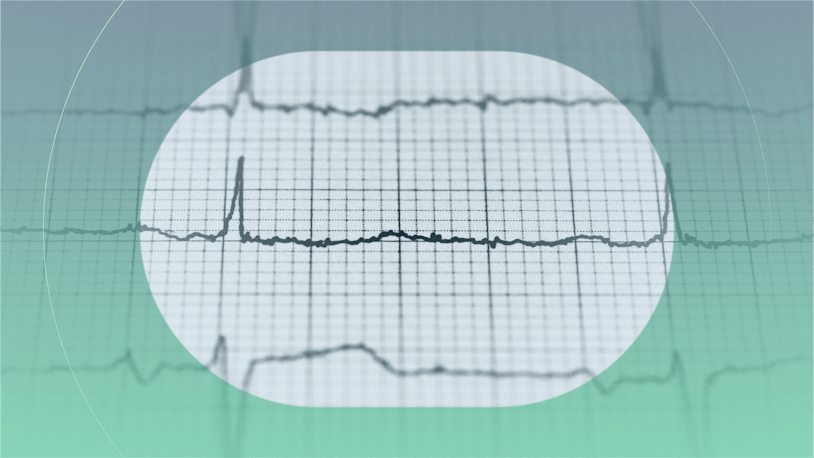As the pace of technological advancement accelerates, the healthcare industry has demonstrated a keen interest in embracing artificial intelligence (AI). It's no surprise, really, given the promise AI holds to transform many aspects of patient care and operational efficiency. Yet the application of AI for healthcare isn't just about technology — it's about people, their health, and the potential to drastically improve quality of life.
Despite the complexities involved, the convergence of healthcare and AI has the potential to create a healthcare system that is more efficient, more personal, and, ultimately, more human. For business owners offering health-related products and services, this can lead to exciting possibilities and solutions that directly improve the care of patients and the operational effectiveness of teams.
In this guide, we'll explore the transformative power of AI in healthcare, navigate its benefits and challenges, and get a glimpse into what the future might hold for this intersection of technology and human well-being.
How AI is transforming the healthcare industry
In recent years, we have witnessed AI taking on an increasingly important role in the healthcare industry. Its applications vary widely, from diagnosis support to data management and even patient care optimization. The result is a significant shift in the way healthcare providers and facilities approach their daily operations, leading to improved treatment planning, more accurate diagnoses, and overall better patient outcomes.
One of the core strengths of AI is its ability to analyze large volumes of data swiftly and efficiently. In the realm of healthcare, this equates to the rapid assessment of medical records, imaging studies, and other relevant health information to help physicians make informed decisions. With the volume of data generated in modern healthcare, AI can be a useful tool for streamlining the decision-making process.
Examples of real-world AI in healthcare are numerous, demonstrating the technology's increasing integration into routine practices. Here are just a few cases that illustrate the potential of AI in this industry.
AI-assisted diagnoses
Machine-learning algorithms are now able to analyze medical images like X-rays, CT scans, and MRIs for signs of disease. By comparing the images against existing datasets, these algorithms can rapidly identify patterns and potential areas of concern that might go unnoticed by the human eye. This can lead to earlier diagnosis and treatment, improving a patient's prognosis.
Drug discoveries and developments
The speed and efficiency of AI makes it a powerful tool for drug discovery. By analyzing data on existing drugs, their interactions, and potential effects, researchers can identify novel drug candidates quickly. This can expedite the otherwise lengthy process of pharmaceutical development and bring life-changing medications to the market more rapidly.
Personalized treatments
In the era of precision medicine, AI is making it possible to personalize treatment plans based on each patient's unique genetic makeup, medical history, and other factors. By analyzing an individual’s genetic data, AI can help healthcare providers predict their response to certain drugs or treatments and create a tailored care plan accordingly, ultimately leading to improved outcomes and reduced side effects.
The benefits of using AI for healthcare organizations
The integration of AI into healthcare settings is steadily gaining momentum, with many organizations benefiting from these advanced technologies. As more companies develop and offer AI tools for healthcare, we expect more benefits of AI in healthcare.
Improved processes
Healthcare is an industry bound by processes — from maintaining patient records and scheduling appointments to monitoring patient vitals. AI can help streamline these processes, reducing the workload on healthcare staff. For instance, AI-powered systems can efficiently use handwriting recognition to manage electronic health records and automate scheduling procedures. This level of automation fosters efficiency and allows healthcare providers to focus more on patient care.
Enhanced patient outcomes
The integration of AI-powered diagnosis and treatment tools are paving the way for improved patient outcomes. As mentioned earlier, AI can support earlier and more accurate diagnoses, help in crafting personalized treatment plans, and predict patient responses to certain treatments.
Improved communication
Communication is fundamental to delivering optimal patient care. You can use AI to enhance clarity and effectiveness, reducing misunderstandings and oversights in patient information management. Additionally, AI's ability to provide real-time assistance can offer a precise interpretation of patient data and accessible insights, resulting in a well-coordinated healthcare environment where professionals can access the right information at the right time. While AI cannot replace human interaction, it serves as a valuable tool in improving communication for healthcare teams.
Cost efficiency
AI's ability to streamline operations and improve processes directly influences cost savings in healthcare organizations. The automation of administrative tasks results in time reductions, also reducing the associated labor costs. Similarly, AI's role in preventive care and early diagnosis, along with tailored treatment plans, can lead to lower costs associated with long-term care.
The key AI technologies used in healthcare
There are several key AI technologies that hold significant promise and potential when it comes to healthcare. While the term AI is broad and encompasses many different technologies, we will focus on two of the most impactful in the healthcare context: machine learning and generative AI.
Machine learning
Machine learning (ML), a subset of AI, involves algorithms that improve automatically through experience and by using fresh data. This is the foundation that enables AI to provide beneficial results without being explicitly programmed for that task.
In healthcare, ML has been instrumental in analyzing large and complex datasets rapidly, leading to insights that might otherwise go unnoticed by human analysis. Here are some of the features of machine learning:
Diagnosis: By analyzing patterns in patients' symptoms, history, and other relevant data, then comparing it with information from thousands of similar cases, machine learning can aid doctors by providing patient diagnosis suggestions. This becomes an efficient second line of verification and can be integral in detecting challenging diagnoses.
Summarization: Machine learning can distill and summarize large volumes of data or information into actionable insights, making it easier for healthcare professionals to understand and take the necessary steps.
Generative AI
Generative AI represents a class of artificial intelligence that goes beyond analyzing data to creating or generating new content. It can predict or simulate likely future events based on the data it has analyzed.
For healthcare, this technology’s key feature lies in documentation and communication. This can include automatically drafting patient communications, reports, or records. By saving time on administrative tasks, doctors can focus more on their primary task: taking care of patients.
AI tools and applications for healthcare professionals
AI is making significant strides in the healthcare industry, bringing new and innovative solutions to the table. In particular, AI-powered tools focused on electronic health records, patient care, and communication are helping to personalize care, improve healthcare delivery, and thereby enhance patient outcomes.
Electronic health records (EHR) management software
AI has the potential to transform the way care is delivered by enabling healthcare providers to tailor medical treatments to individual patients. By sifting through extensive health records and genetic information, AI tools identify patterns in a patient's history that may be indicative of their specific medical conditions or impending health risks. By eliminating the clutter of traditional paper records, AI enables more precise diagnoses and personalized treatment plans, streamlining service delivery.
HIPAA-compliant messaging apps
HIPAA-compliant messaging apps facilitate secure and immediate communication among healthcare teams and patients alike. Internally, care teams can swiftly exchange updates or discuss treatment options in a secure environment, streamlining communication and enhancing collaborative efforts. For interactions with patients, AI chatbots and virtual assistants are capable of providing instant, informative responses to patient queries and improving help desk productivity.
Diagnostic tools
The primary function of AI-powered diagnostic tools is to support healthcare professionals by providing an additional layer of analysis, which can lead to quicker identification of conditions. For example, in imaging diagnostics, AI can sort through thousands of images, flagging potential areas of concern which a radiologist would then review for a more accurate diagnosis.
In specialties like oncology and neurology, where early detection is key, this rapid processing can be particularly valuable.
AI diagnostics also aim to bring a consistent level of analysis to cases, potentially reducing variance between different healthcare providers. As AI systems learn from the data they're fed, the idea is that they can continually improve their diagnostic suggestions.
The integration of AI into healthcare presents new considerations, particularly in terms of data security and ethical use, but it can also translate into more streamlined processes, better resource management, and, ultimately, improved patient care. Of course, it's important for medical professionals to use AI as a tool to support instead of replacing critical human judgment.
Potential challenges of implementing AI in healthcare
While the integration of artificial intelligence in healthcare boasts numerous potential benefits, it also brings a number of challenges. Addressing these issues is key to ensuring successful implementation and obtaining the maximum benefit from these advanced technologies.
Privacy and ethical concerns
One of the main challenges to address is the matter of privacy. As AI systems handle sensitive patient data, there's a need to ensure robust security measures to protect this information. Breaches could have serious implications, not only for the patient's privacy but also for the credibility of the healthcare provider.
Closely tied to privacy is the issue of ethical concerns. Ethical questions crop up as we have AI systems predicting health risks or recommending treatments. Who bears the responsibility if an AI tool delivers incorrect information or makes an inaccurate prediction? Navigating the moral landscape of AI for healthcare is a critical part of its implementation.
Impact on the workforce
AI tools take on tasks that are traditionally performed by humans, leading to concerns about their impact on the workforce. Will AI replace human jobs? While the goal of AI is to automate mundane tasks and allow healthcare staff to focus on more complex duties, it's essential to consider the potential implications on employment and to find ways to ensure staff are trained to work alongside these new technologies.
AI bias in healthcare
AI algorithms are based on the data they process, which means that any bias in the data can lead to AI bias. For instance, what if a dataset is too heavily weighted to a specific gender, age, or ethnic group? These biases could impact the AI's decisions further down the line and unintentionally skew diagnoses or treatment recommendations, leading to disparities in healthcare delivery. Working toward unbiased, inclusive data collection is an important step in mitigating this challenge.
Integration and deployment of AI systems
Finally, the integration and deployment of AI systems into existing healthcare infrastructures present unique challenges. These include technical issues, such as compatibility with existing software, as well as operational ones, like training staff adequately to use these new tools. Overcoming these hurdles is crucial for the seamless and productive integration of AI technology into healthcare operations.
The future of AI for healthcare
Exciting possibilities are on the horizon for AI use in healthcare settings. The rapid advancements in this technology forecast progressive transformation and growth. Let's look at a few of the potential trends we can expect.
Advanced AI features in healthcare
Healthcare stands to benefit significantly from more advanced AI features. Already we see AI being used to speed up diagnostics, personalize treatments, and streamline administrative tasks. The progression of AI promises to bring even more transformation.
AI is expected to play a larger role in diagnostic imaging, enhancing the precision and reducing the time taken to interpret scans. We could also see AI predicting patient health risks and outcomes with even more accuracy, potentially saving lives.
For healthcare professionals, advanced AI systems could automate even more administrative tasks, freeing up more time to focus on patients. Similarly, AI systems may facilitate proactive patient care, helping manage chronic diseases more effectively.
The patient-physician relationship
AI has the potential to significantly impact the patient-physician relationship. With the help of AI, doctors could soon have more time to spend with their patients, fostering stronger relationships and better understanding of their needs.
Through AI technologies like telemedicine and virtual health assistants, patients will likely have greater access to healthcare. This could enable more regular check-ins, faster responses to queries, and, ultimately, greater patient satisfaction.
Moreover, by leveraging AI data, doctors will be able to offer more personalized healthcare. This means better treatments tailored to individual patient needs based on extensive data analysis that humans alone might not be able to achieve.
Considerations and opportunities for AI in healthcare
By streamlining tasks, aiding in diagnostics, and fostering better patient engagement, AI is poised as an invaluable tool for healthcare practitioners seeking to enhance patient care and operational efficiency. However, as with any powerful tool, successful implementation requires careful planning, thoughtful integration, and ongoing oversight. From ensuring data privacy and overcoming AI bias to appropriately training the staff and resolving integration hiccups, there's a road map to follow for embracing AI.
Above all, it’s important to remember that AI is not here to replace the human touch in healthcare but to aid it. While AI can automate many tasks and provide valuable insights from data analysis, the empathetic touch and critical thinking skills of human doctors, nurses, and technicians remain irreplaceable.





